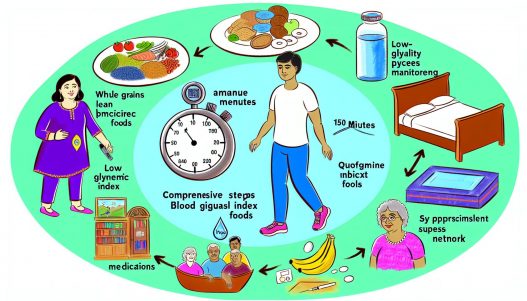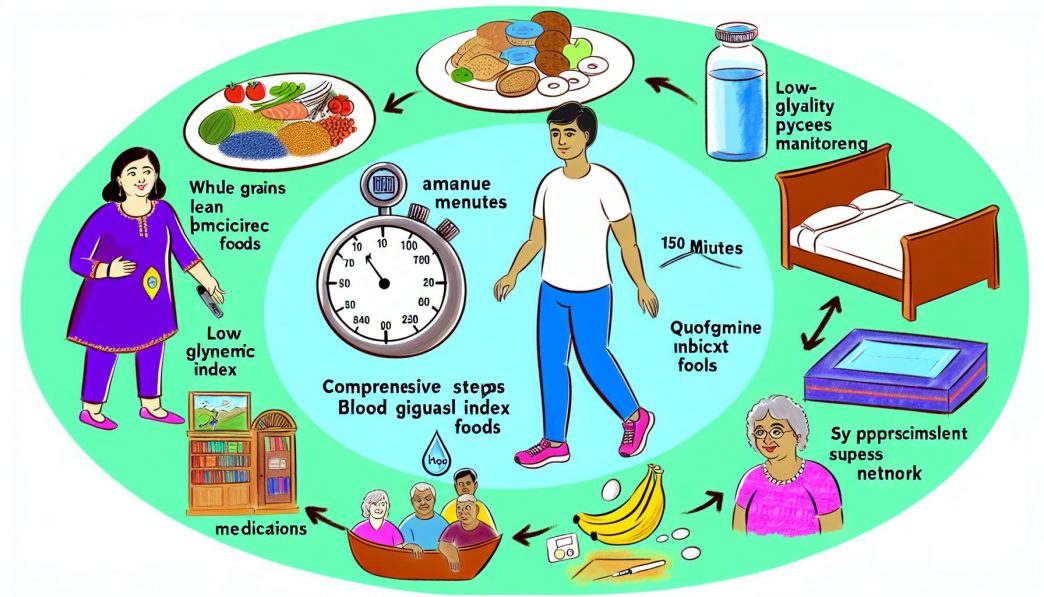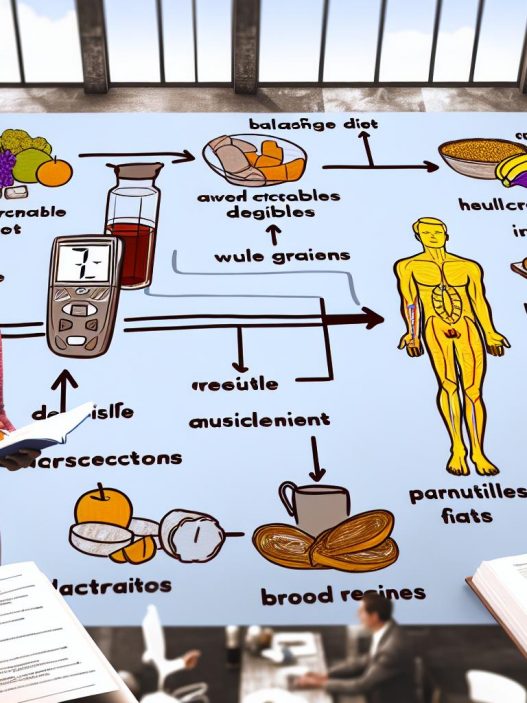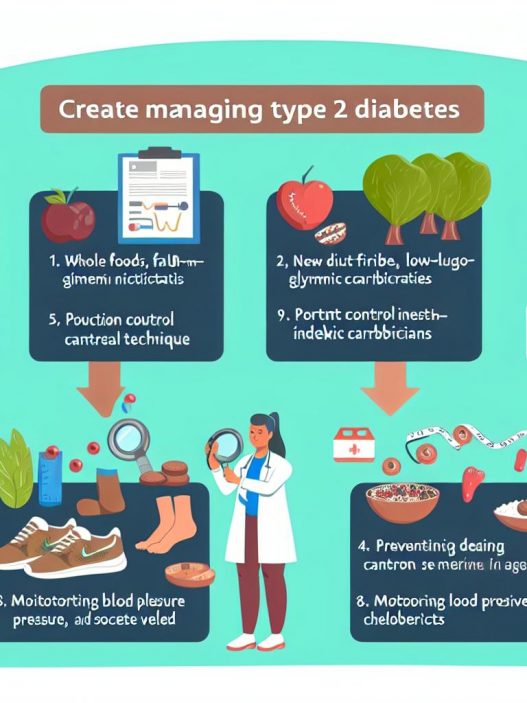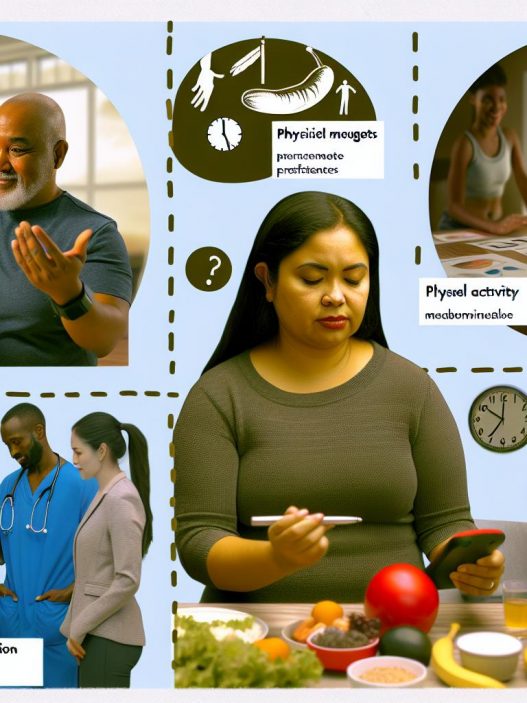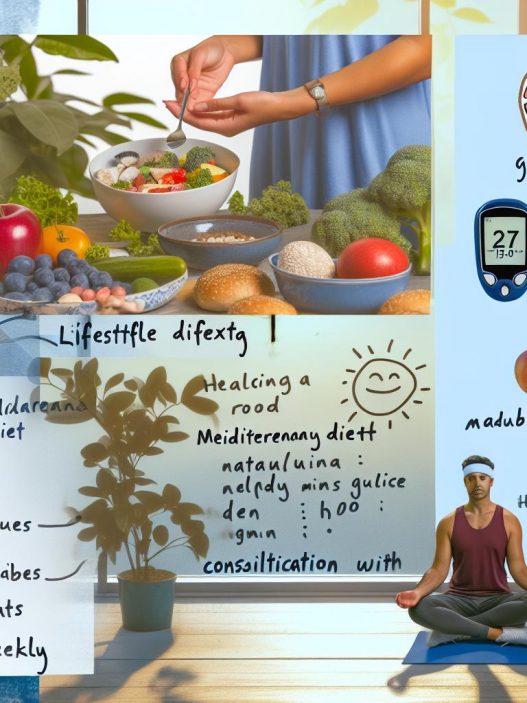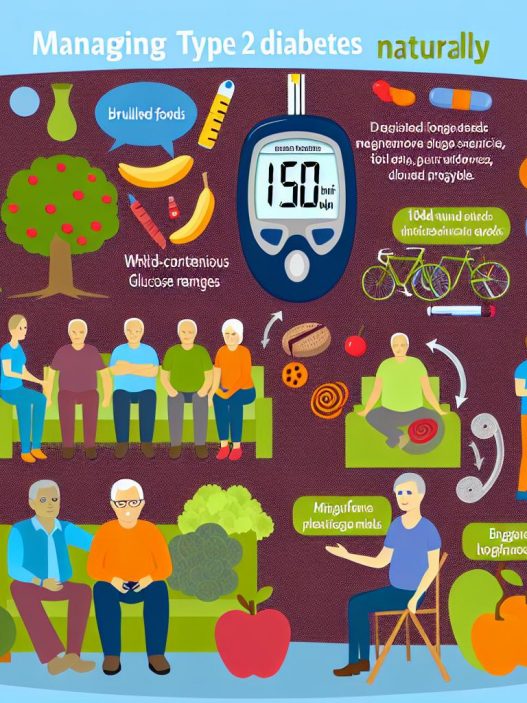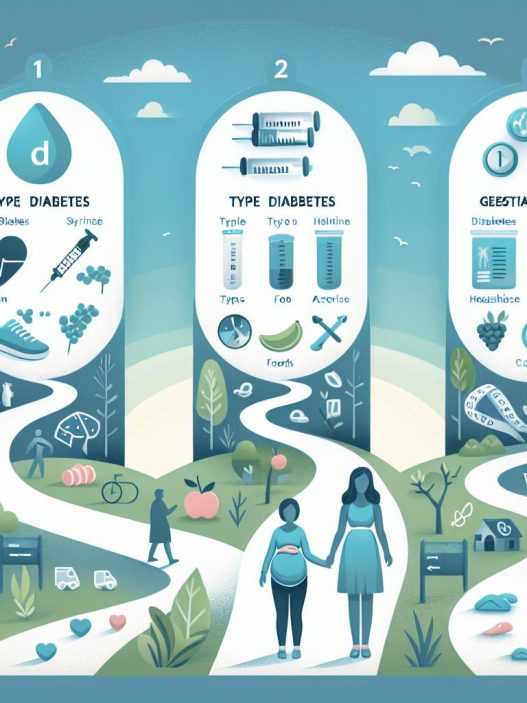**10 Essential Tips to Manage Type 2 Diabetes Effectively Today**
Diabetes is a chronic condition that affects millions of people around the globe. Type 2 diabetes, in particular, requires careful management to maintain a healthy lifestyle and prevent complications. Managing type 2 diabetes effectively involves a combination of healthy eating, regular physical activity, and monitoring blood sugar levels. In this article, we’ll explore ten essential tips that can help you effectively manage type 2 diabetes today.
Understanding Type 2 Diabetes Management
Managing type 2 diabetes is a proactive process that focuses on maintaining blood sugar levels within a healthy range. This involves understanding how various factors such as diet, exercise, and medications can influence glucose concentrations in the blood. By becoming informed and educated about your condition, you can make informed choices that will help you live a fulfilling life while minimizing health risks.
For many people diagnosed with type 2 diabetes, the journey starts with lifestyle changes. Adopting better eating habits, increasing physical activity, and learning to monitor your blood sugar levels can be transformative. Moreover, it’s crucial to work closely with healthcare professionals to develop a management plan tailored specifically to your needs.
Tip 1: Adopt a Balanced Diet
Eating a balanced diet is foundational in managing type 2 diabetes effectively. This means incorporating a variety of foods that provide essential nutrients without causing spikes in blood sugar levels. Focus on consuming whole grains, lean proteins, healthy fats, and plenty of fruits and vegetables.
It’s essential to understand the glycemic index of foods you consume. Foods with a low glycemic index (such as quinoa, brown rice, and most fruits and vegetables) release glucose more slowly into the bloodstream, helping to keep your blood sugar levels stable. Planning meals with a good balance of carbohydrates, proteins, and fats will improve not only your energy levels but also your overall health, ensuring that you remain energized throughout the day.
Tip 2: Regular Physical Activity
Regular physical activity is critical in managing type 2 diabetes. Exercise helps improve insulin sensitivity, allowing your body to use glucose more effectively. Whether it’s a brisk walk, cycling, or joining a dance class, find activities that you enjoy and can commit to regularly.
Aim for at least 150 minutes of moderate-intensity aerobic activity each week, which can include activities like jogging, swimming, or cycling, and include strength training exercises at least twice a week. Not only does regular exercise aid in weight management, but it also helps to lower blood sugar levels, boost cardiovascular health and improve mood through the release of endorphins. Over time, becoming more active will empower you to take charge of your diabetes management.
Tip 3: Monitor Your Blood Sugar Levels Regularly
Regularly monitoring your blood sugar levels is vital for effective diabetes management. Understanding how your body reacts to different foods, activities, or medications helps you make informed decisions. With proper monitoring, you can identify patterns and adjust your approach accordingly, avoiding potential complications related to diabetes.
Invest in a good glucose meter and learn how to use it effectively. Depending on your healthcare provider’s recommendations, check your levels at different times throughout the day—such as fasting in the morning and after meals—to get a comprehensive picture of your blood sugar control. Keeping a log of your readings can also provide valuable insights that can be shared with your healthcare professional to better tailor your management plan.
Tip 4: Stay Hydrated
Staying properly hydrated is often overlooked in diabetes management. Drinking enough water is crucial for maintaining optimal blood circulation and kidney function, both of which are particularly important for individuals with diabetes. Dehydration can lead to elevated blood sugar levels, so aim to drink water consistently throughout the day.
Replace sugary beverages and sodas with water or unsweetened herbal teas to avoid unnecessary calorie and sugar intake. If you crave flavored beverages, consider adding slices of fruits, such as lemon or cucumber, to your water for a refreshing twist. Staying hydrated not only supports your diabetes management efforts but also contributes to overall health and wellness.
Tip 5: Educate Yourself About Diabetes
Understanding your condition is empowering. Take the time to educate yourself about type 2 diabetes and how it affects your body. Knowledge about how foods, lifestyle choices, and medications impact blood sugar levels equips you to make better decisions daily.
Consider attending workshops, joining support groups, or reading reputable sources about diabetes management. The more you know about your condition, the better prepared you will be to navigate challenges and make informed choices. Additionally, staying informed about advancements in diabetes research and treatments can influence your management strategies in the long run.
Tip 6: Monitor Your Weight
Maintaining a healthy weight is essential in managing type 2 diabetes effectively. Excess weight can increase insulin resistance, making it more challenging to control blood sugar levels. Therefore, adopting a weight management plan that includes a balanced diet and regular physical activity is crucial for improving insulin sensitivity.
If you are overweight, even a modest weight loss of 5 to 10 percent of your body weight can significantly improve blood sugar levels and reduce health risks associated with diabetes. Focus on healthy weight loss strategies that promote sustainable changes rather than quick fixes. Remember to celebrate all victories, regardless of their size along your weight management journey.
Tip 7: Take Your Medications as Prescribed
Many people with type 2 diabetes may require medication or insulin therapy to help manage blood sugar levels effectively. Adhering to your prescribed medication regime is crucial for ensuring stable glucose levels and preventing complications associated with diabetes.
Consult with your healthcare provider regularly to discuss your progress and any side effects you may be experiencing. If you have concerns about your medications, don’t hesitate to speak up. A collaborative approach with your healthcare team can lead to personalized management strategies that work best for you.
Tip 8: Get Sufficient Sleep
The importance of adequate sleep should not be underestimated in diabetes management. Poor sleep quality and insufficient sleep can negatively affect blood sugar regulation, leading to higher levels of insulin resistance. Prioritizing restorative sleep can naturally support better blood sugar control while reducing stress levels.
Establishing a bedtime routine that encourages relaxation can help you unwind and promote better sleep patterns. Aim for around 7 to 9 hours of quality sleep each night to optimize your physical and mental health. Paying attention to your sleep hygiene is a vital aspect of a holistic diabetes management plan.
Tip 9: Manage Stress Effectively
Stress management is another critical component of diabetes management. High-stress levels can adversely affect blood sugar levels and lead to unhealthy coping mechanisms, such as overeating or neglecting physical activity. Find effective stress management strategies that work for you, whether through mindfulness, yoga, meditation, or engaging with hobbies.
Incorporate activities into your daily routine that bring you joy and relaxation. Not only can this help mitigate stress, but it will also contribute to creating a balanced, fulfilling lifestyle while managing your diabetes effectively.
Tip 10: Seek Support and Build a Strong Network
Managing type 2 diabetes can sometimes feel isolating, but seeking support can play a vital role in your journey. Surround yourself with positive influences, whether friends, family, or diabetes support groups, who can motivate and empower you. Sharing your experience and challenges with others who understand what you’re going through can foster a sense of community.
Additionally, working closely with your healthcare team, including doctors, dietitians, and diabetes educators, can help optimize your management plan. With the right support network in place, you can feel more confident and motivated to make a positive impact on your diabetes management journey.
In conclusion, managing type 2 diabetes effectively involves a multifaceted approach that combines healthy lifestyle habits with education and support. By adopting these ten essential tips, you can take control of your diabetes and live a healthier, happier life.










